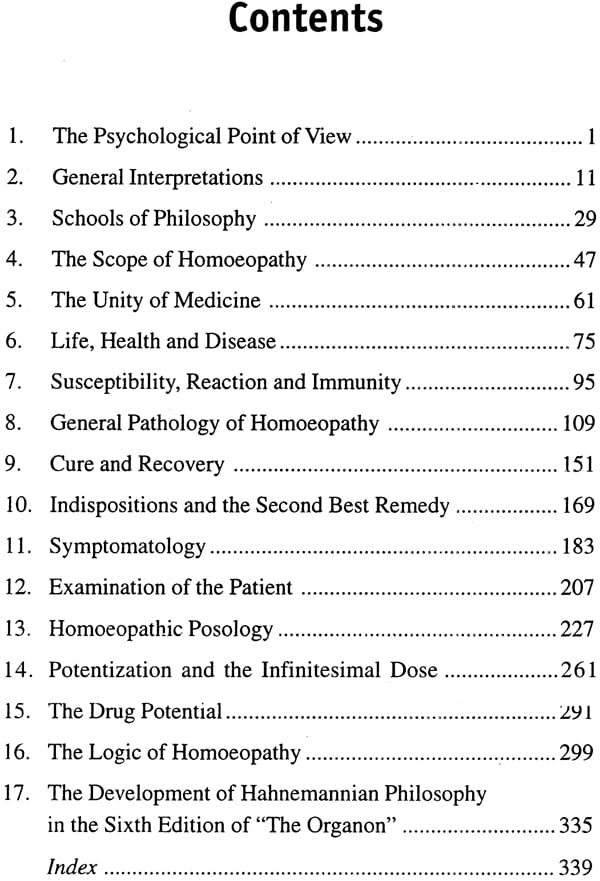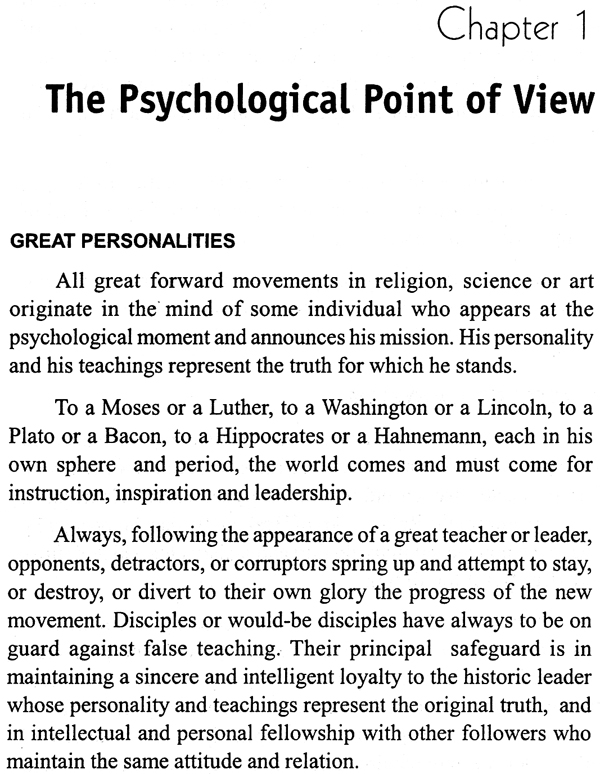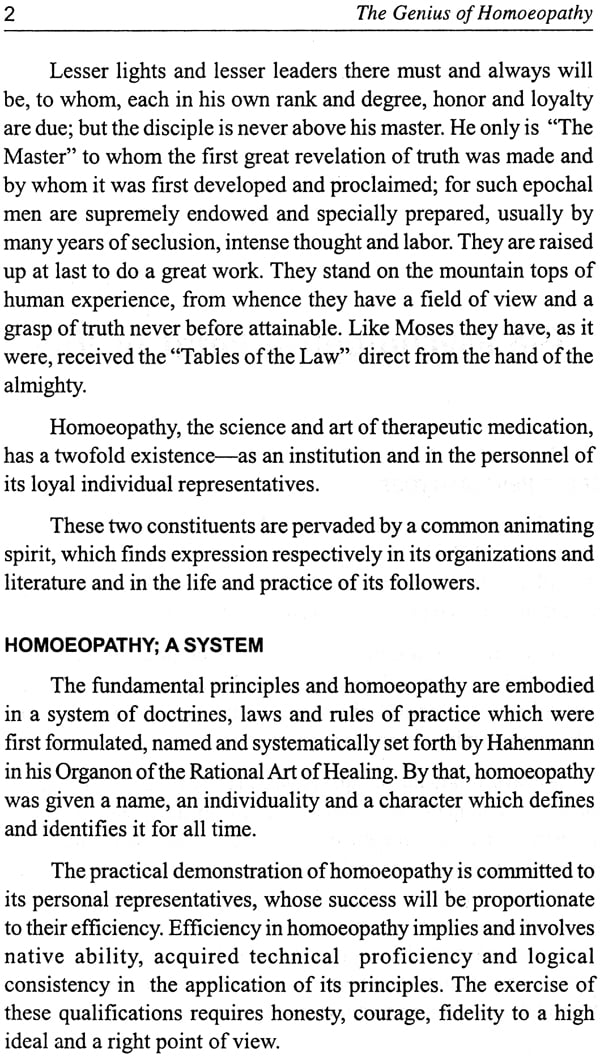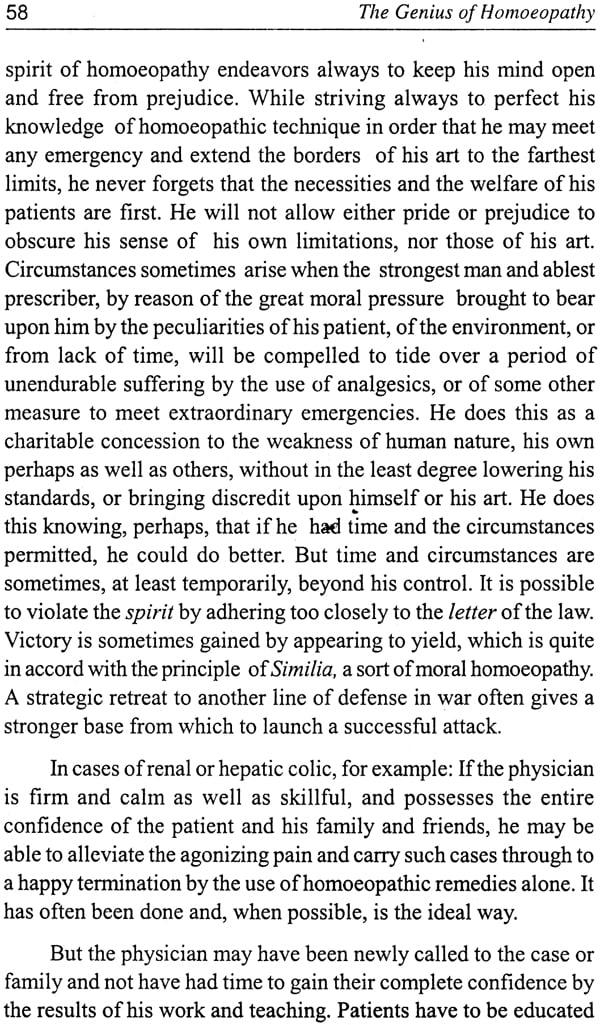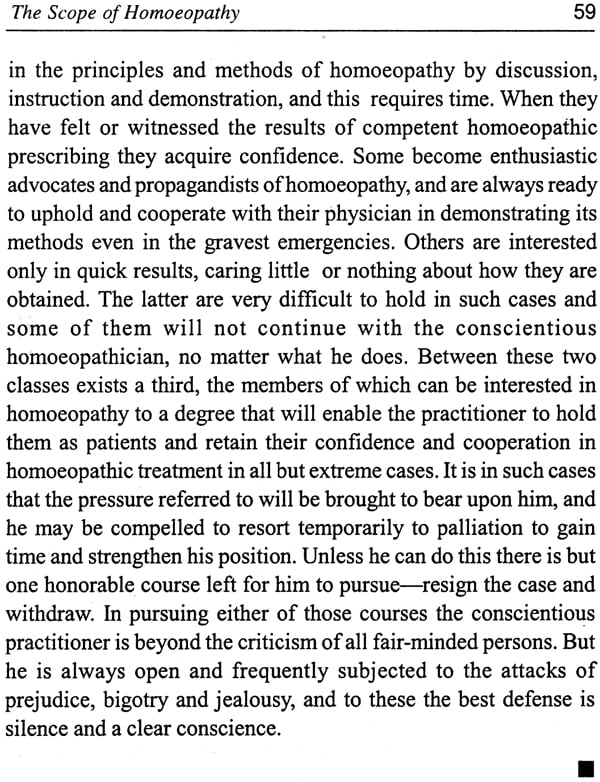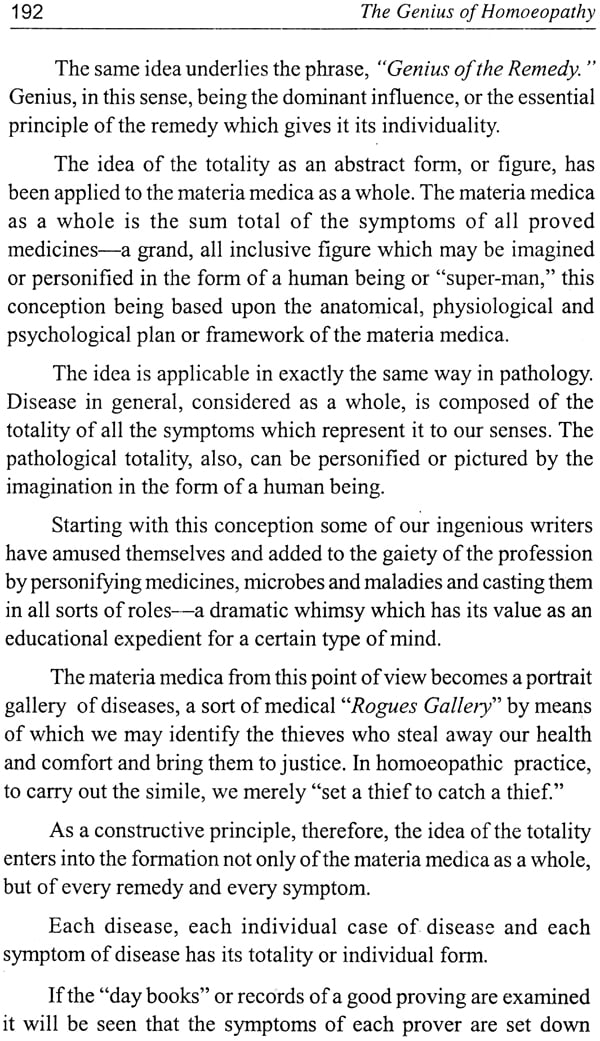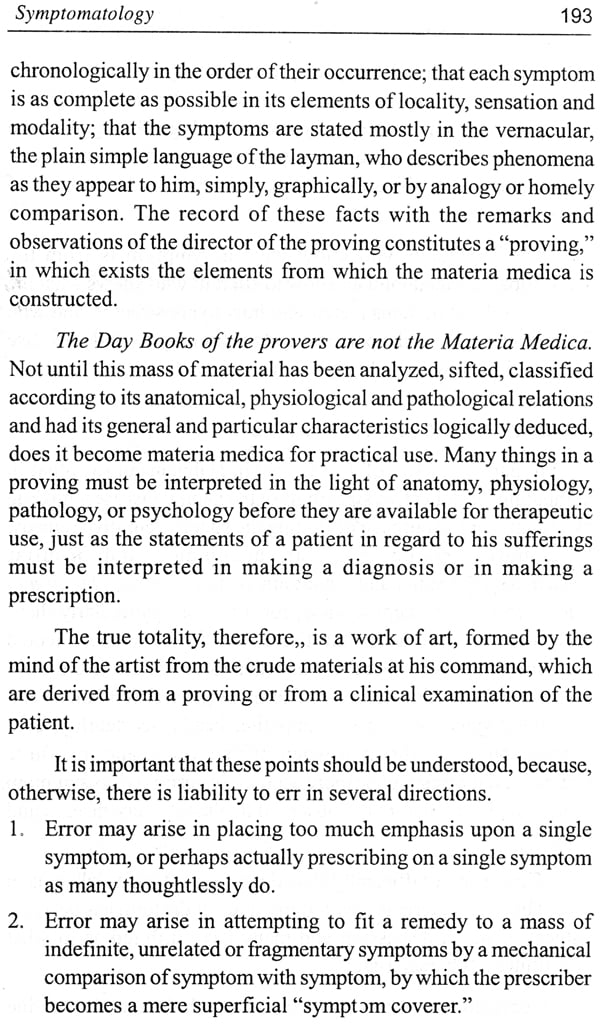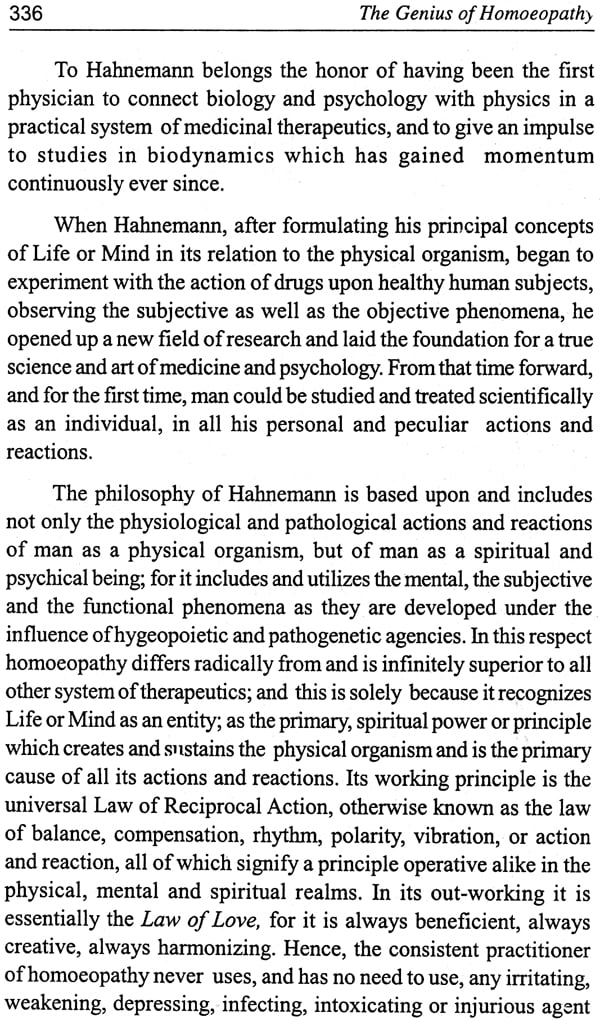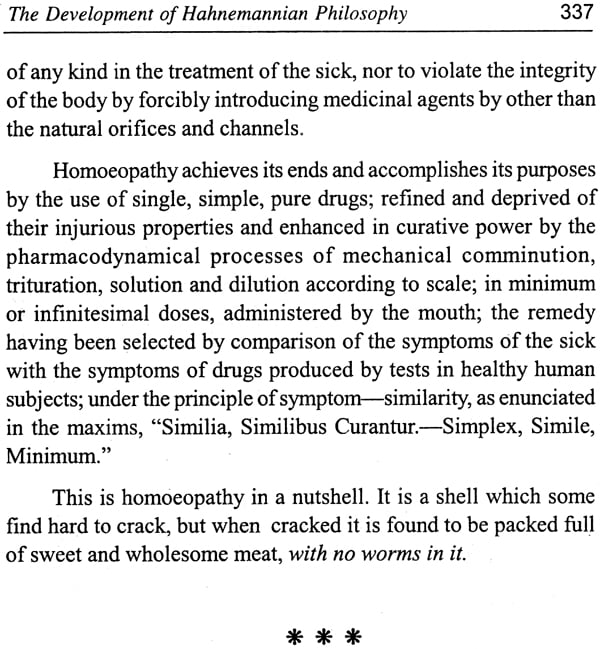
The Genius of Homoeopathy Lectures and Essays on Homoeopathic Philosophy with Word Index
Book Specification
| Item Code: | NAS401 |
| Author: | Stuart Close |
| Publisher: | B. Jain Publishers (P) Ltd |
| Language: | English |
| Edition: | 2018 |
| ISBN: | 9788131902882 |
| Pages: | 358 |
| Cover: | PAPERBACK |
| Other Details | 8.50 X 5.50 inch |
| Weight | 360 gm |
Book Description
The Genius of Homoeopathy comprises of a series of lectures delivered at the New York Homoeopathic Medical College. Close was a student of P.P. Wells and Bernhardt Fincke. This book is one of the most clear statements about the philosophical basis of homoeopathic study ever compiled. This book by a stalwart is an exposition of the logical, historical, and philosophical principles upon which homoeopathy is based and it attempts to show its relation as department of general medicine to other sciences. We hope this new upgraded book will make the task of students and readers much easier and interesting.
Stuart Close was born on November 24, 1860 in Wisconsin, United States. In 1879, while Close was reading law, his father died and his mother then remarried to one of the San Francisco's leading homoeopathic practitioners. It was at this point that Dr Stuart Close thought of studying homoeopathy and his stepfather then furnished him with a comprehensive training in Samuel Hahnemann's Organon. In 1885, he graduated from the Medical College of the Pacific. His career is noted for its exactitude according to Hahnemann's principles. The dedication and exactness with which Dr Close pursued Hahnemann's teachings, won him high praise with the latter's followers.
Many of the articles which make up this book were originally prepared and delivered as lectures for the Senior Classes of the New York Homoeopathic Medical College, during my engagement as Professor of Homoeopathic Philosophy, 1909- 1913. Most of them, after revision, have appeared during the past four years in the Department of Homoeopathic Philosophy conducted by me in The Homoeopathic Recorder. Revised again, they are now issued in compliance with many requests from readers of The Recorder and others, who have expressed their belief that they are worthy of preservation and that their publication in book form will serve a useful purpose.
In discussing Hahnemannian principles from a modern standpoint IJ hope to contribute something toward a renewal of interest in the science and art of therapeutic medication as exemplified in Homoeopathy, of which the medical profession is much in need.
A review of current literature and neighborly relations with many physicians of the dominant school of medicine reveals not only a more friendly spirit than formerly existed, but an active interest in what their homoeopathic brethren have to offer toward the solution of therapeutic problems and a desire to co- operate. The era of therapeutic nihilism is passing away. Thinking men and leaders of the dominant school are ready to participate in a scientific discussion of the theory and principles of therapeutic medication from a homoeopathic standpoint when approached in a non-sectarian spirit. They are becoming more generally receptive of the idea of the existence of a general principle or law of therapeutic medication than ever before and more willing to consider evidence submitted in favor of that proposition. They rightly hold, however, that the evidence to be submitted should be prepared in such a manner as to comply with the requirements of scientific research. Leaving that phase of the subject to the scientific and research workers and others to whom it may be congenial, and not forgetting the many in our own school who are interested, it seems permissible to present once more, as simply and attractively as possible, an exposition of the logical, historical and philosophical principles upon which Homoeopathy is based and attempt to show, at least suggestively, its relation as department of general medicine to other sciences. That is the object of this book. It makes no pretensions to being "scientific." It is conceived and submitted in a fraternal and philosophic spirit, however far it may fall short of adequate expression.
**Contents and Sample Pages**
